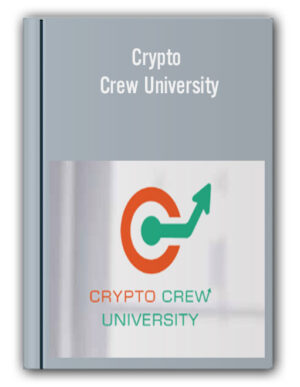Farnam Street – Mental Models For Better Thinking
Farnam Street – Mental Models For Better Thinking course is now available at an affordable price. You can check out directly using multiple payment gateway options. If you have any questions or need an alternative payment method, feel free to contact us.
Welcome to the World of Mental Models—Personal as Well as Professional—Better Thinking May Change Your Life
Improved thinking may transform both personally and professionally in your life. Mental models guide quicker, more effective decisions in a complex environment by helping you to handle the noise of modern life with clarity and purpose. Welcome in the fascinating realm of mental models.
Mental Models: Define them.
First let us establish a mental model so we may start straight forwardly. All things considered, a mental model is a conceptual framework meant to allow our interpretation of the environment. Consider it as a road plan fit for a pocketbook for negotiating difficult terrain. Mental models are ideas, concepts, or systems of thought that enhance our mental processes thereby supporting decision-making and problem-solving.
Why are mental models valuable?
Mental models help us to predict results, break apart challenging situations, and direct decisions, much as a versatile Swiss Army knife would allow. Rather than depending only on one mental model, the goal is to build a latticework of multiple models.
“80 or 90 important models will carry about 90% of the goods in making you a worldly-wise person,” said millionaire and close friend of Warren Buffett, Charlie Muner. A diverse mental toolkit promotes resilience and cognitive flexibility.
Vital Mental Models for Research
The Territory Is Not Found on the Map
Derived from General Semantics by Alfred Korzybski, this paradigm stresses how distinct reality (“territory”) is from our view of it (“maps”). Knowing this allows us to see that our sensations are only reflections of objective reality, not the reality itself. This sort of thinking keeps one open to new ideas and prevents too strong presumptions.
First Principles: Mental Approach
Elon Musk pioneered first principles thinking, which is based on breaking apart a challenging problem into its most basic components and reconstructing it from the bottom up. It’s like disassembling a LEGO set into separate parts and then building something entirely new from those basic components.
Invert
Inversion allows us to focus more on what we want to avoid than on what we should do. Imagine golfing and asking, “What would make me miss this shot?” From food to business strategy, turning the problem around may expose flaws that would otherwise go unseen and create fresh opportunities.
The Science Basis of Mental Models
Theory of Cognitive Load
John Sweller’s Cognitive Load Theory argues that working memory is limited. Mental models enable our brains to focus on higher order problem-solving by helping to lessen this load. Like a good chess player who forecasts several moves ahead, effective mental models enable us to handle routine chores and complexity more quickly.
Neural Plasticity and Mental Models
New information and experiences enable the brain to restructure itself—a process known as neuroplasticity. Learning new mental models promotes cognitive networks and brain development. Consider it as a kind of mental exercise keeping your brain agile and sharp!
Useful Utilitabilities of Mental Models
One thing is knowledge of mental models; another is effective use of them. Mental models have many practical uses in different disciplines as follows:
Business Law of Diminishing Returns and Economics This theory claims that, while keeping others fixed, progressively lower per-unit returns follow from raising one manufacturing input. Knowing this helps companies avoid useless expansion.
Every choice we make implies giving up the next best choice. Examining opportunity costs helps one make better decisions about resources.
Human Growth
Little, consistent progress made over time adds up. Whether your objectives are skill improvement or retirement funds, compounding is your friend.
Knowing and following your area of competence can help you to avoid mistakes. Steering outside of this circle raises your error probability.
Razor in Occam: The simplest theory with the least presumptions should be chosen among contradicting ones. This method encourages simplicity and helps to minimize needless complexities.
Uncertainties occur in life; probabilistic thinking is natural. Making better judgments and assessing risks relies on using probability instead of guarantees.
Case Study: Mental Models Applied at Business
Think about Apple Inc.’s meteoric climb under Steve Jobs. Often using first principles thinking, Jobs broke down goods to their basic components and recreated them from ground up. Products like the iPod and iPhone came out of this approach, transforming the market.
Jobs and his group also used inversion by routinely asking, “What could make this product fail?” This kind of thinking let them see possible problems early in the design process.
Developmental Models: Strategies
Readers should read diversifiedly and broadly.
Come into contact with several fields. Every discipline, including economics, includes a set of mental models. Learning them increases your tool set for thinking.
Research Under the Direction of Experts
Go over the works of intellectual elite. Books such as “Poor Charlie’s Almanack” by Charlie Munger and “Thinking, Fast and Slow” by Daniel Kahneman abound with treasures of mental models.
Perfect via Consistent Work
Apply everyday ideas from these sources. Use them particularly in strategic planning, problem-solving, and decision-making.
Your Trip Through Mental Models: Future Directions
Including mental models into your daily life can help you to negotiate complexity and make better judgments. At [Farnam Street – Mental Models For Better Thinking], we are committed to provide cognitive tools to improve your thinking.
All set to go deeper?
See our extensive guide on [Farnam Street – Mental Models For Better Thinking] to learn more about the strong mental models that may change your attitude to problems. Expanding your mental toolset can help you to reach your potential.
At last, Your Path Starts Right Now.
Accept the path of always learning and development. Finding and using mental models can allow you to become more effective, flexible, and perceptive. Never stop questioning; keep learning with [Farnam Street – Mental Models For Better Thinking]. Your future self will thank you!
Sales Page
Delivery Policy
When will I receive my course?
You will receive a link to download/view your course immediately or within 1 to 24 hrs. It may takes few minutes, also few hours but never more than 24 hrs. Due to different time zone reasons.
How is my course delivered?
We deliver courses through Google Drive or Telegram. Once your order is complete, you?ll receive an email with a Google Drive or Telegram channel access link to view/download the course.
In case you submit a wrong email address, please contact us to resend the course to the correct email.
Where can I find my course?
Upon completing your order, a link to download or access the course will be sent to your email. Alternatively, you can find it in the ‘My Account’ download section.
If you do not see it there, please share a screenshot of your order and payment with me on Telegram at @ bossallcourses_bot to ensure prompt assistance. I am highly responsive on Telegram.








Reviews
There are no reviews yet.